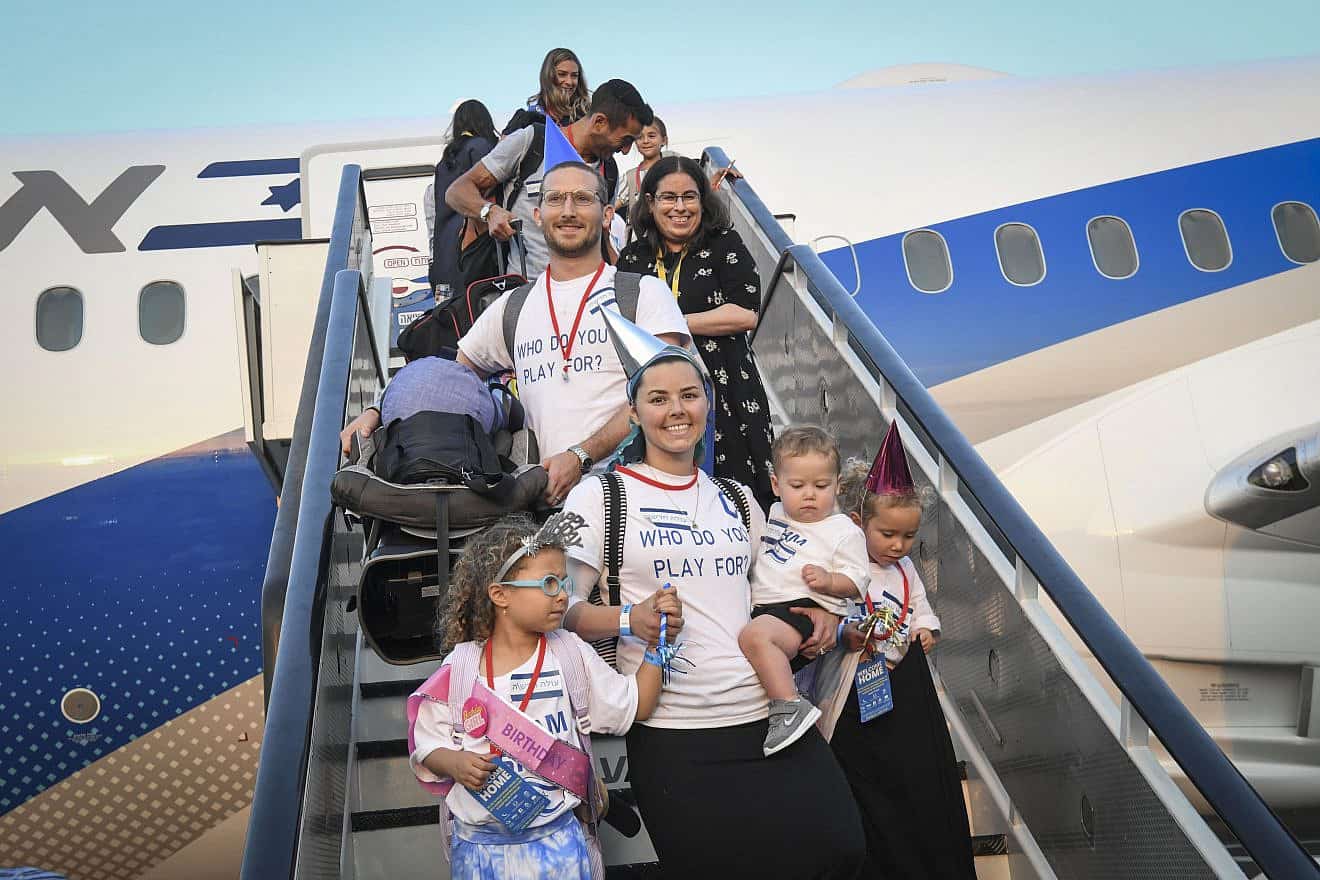The year 2023 was marked by a decline in the number of immigrants to Israel, but it seems that the war that has been going on here in the last three months could have changed that trajectory.
In 2022, against the backdrop of the war in Ukraine, 62,403 new immigrants arrived in Israel—over 15,000 of them from Ukraine, with others hailing from Russia, France and Belarus.
In all of 2023, only 36,293 new immigrants came to Israel, with the largest number in January at 6,711. As the year progressed the numbers continued to decline. Still, from data collected by Israel’s Aliyah and Integration Ministry, since the outbreak of the Oct. 7 war, there has been a significant increase in the number of new immigration files opened—a figure that will necessarily impact immigration data in the first months of 2024, which will likely see a spike once tabulated in full.
According to Qualita, the umbrella organization of French immigrants in Israel, there has been a 500% surge in the number of aliyah files opened in France since the outbreak of the war. Ariel Kandel, CEO of the organization, said: “The antisemitism and thousands of violent incidents against Jews in France have led to an unprecedented desire for French Jews to immigrate to Israel and assist in the war effort.
“This is an opportunity that must not be squandered. The State of Israel needs to initiate and implement a program to bring new immigrants as soon as possible, to strengthen the state during and after the war.”
According to Nefesh B’Nefesh, which operates in North America, since the start of the war, some 4,200 aliyah files have been opened with them—an increase of 120% compared to the same period the year before (October to early January).
Nefesh B’Nefesh co-founder and Executive Director Rabbi Yehoshua Fass told Israel Hayom: “North American Jewry is voting with its feet and choosing to immigrate to Israel in its difficult hour. The war did not cause Jews who wanted to immigrate to cancel their plans—it even intensified the urgency to get to the land, out of a sense of belonging and solidarity.”
Since the start of the war until the first week of January, a total of 4,783 new immigrants have immigrated to Israel, most of them from Russia, the United States, Ukraine and France. Almost all of the immigrants who arrived in Israel during this period began the process before the war. In total, since the outbreak of the war, nearly 7,000 new aliyah files have been opened worldwide.
Earlier this month, about 100 young immigrants from 23 countries arrived in Israel through the Scout Movement’s “Tzabar” program. They will undergo military preparation activities and Hebrew-language studies, and will enlist for combat roles in the IDF in a few months. About 30 youths from France, who arrived in Israel in November to enlist for service, are also currently staying at the Gur Yehuda pre-military academy.
Spike in opening immigration files
The Aliyah and Integration Ministry, the Jewish Agency and other organizations also estimate that the reasons for the spike in requests to open immigration files are the war in Israel and the growing antisemitism worldwide. However, the conventional wisdom is that the main reason for immigration is still Zionism. Half of the candidates who opened aliyah files in the United States stated Zionism as the main reason for their aliyah.
According to the World Zionist Organization, 2023 ended with an increase of 230% in antisemitic events worldwide compared to 2022. A report from Israel’s Diaspora Affairs and Combating Antisemitism Ministry, submitted to the Knesset Aliyah and Integration Committee, stated that there had been an increase in antisemitic incidents since the outbreak of the war. For example, in the United States more than 400 higher education institutions received bomb threats, an increase of 540% compared to the same period last year.
In Toronto, Canada, the number of antisemitic incidents has risen 211% since the beginning of the war, in Britain, there was an increase of 162%, and in Australia, there was an increase of 738% compared to the same period last year.
An antisemitic incident every 80 seconds
According to research conducted at the Hebrew University of Jerusalem’s Kantor Center for the Study of Contemporary European Jewry, an antisemitic incident occurs somewhere in the world every 80 seconds.
According to the organization Fighting Online Antisemitism, which prepared a report together with the WZO, since the outbreak of the war, there has been a 300% spike in antisemitic content on social networks.
Aliyah and Integration Minister Ofir Sofer said in the wake of these developments: “The immigration of many Jews to Israel during the war and the tremendous spike in opening immigration files are an important Zionist act and expression of solidarity with the state at this time.”
Doron Almog, chairman of the Jewish Agency for Israel, added: “Immigration to Israel at times like these is yet another testament to the degree to which Diaspora Jewry has partaken in building the State of Israel and its revival. I welcome every one of the immigrants who are building their home in Israel these days.”
Roni Cetro (54), immigrated from the U.S.
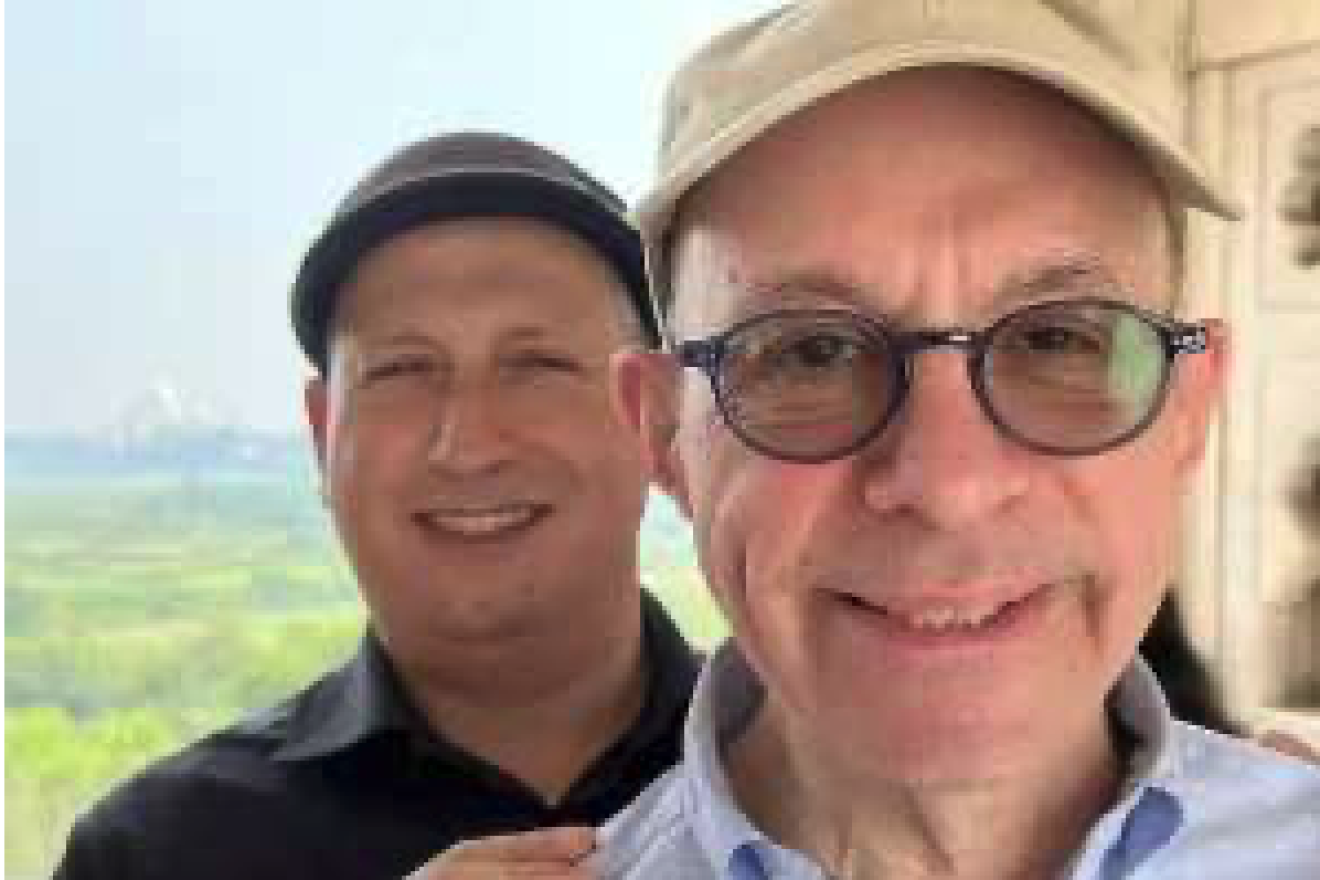
Cetro and his partner Bob made aliyah to Israel in mid-December and moved to reside in Jerusalem. For 24 years, Cetro served in the U.S. Navy as a dentist. Before the two immigrated to Israel, they lived in Manhattan.
As a doctor in the American military, Cetro was overseas, and for most of his years of service, he was forced to hide the fact that he had a partner. In fact, only since 2013 has the American military recognized LGBT couples.
In his last years in the military Cetro served in Italy. Bob arrived there too, and then they finally decided to immigrate to Israel when Cetro finished his service. “We didn’t come here because of the war, and it also didn’t impact our plans,” they said. Cetro grew up in a Zionist community in Chicago, his mother is a former Israeli, he has relatives here and he speaks Hebrew.
The war didn’t stop them, he said. “Quite the opposite. We feel it’s a good time to make aliyah. I’m working on getting my medical license in order so that I can volunteer for the IDF and help wherever I can.”
Lior Pirouzian (25), immigrated from the U.S.
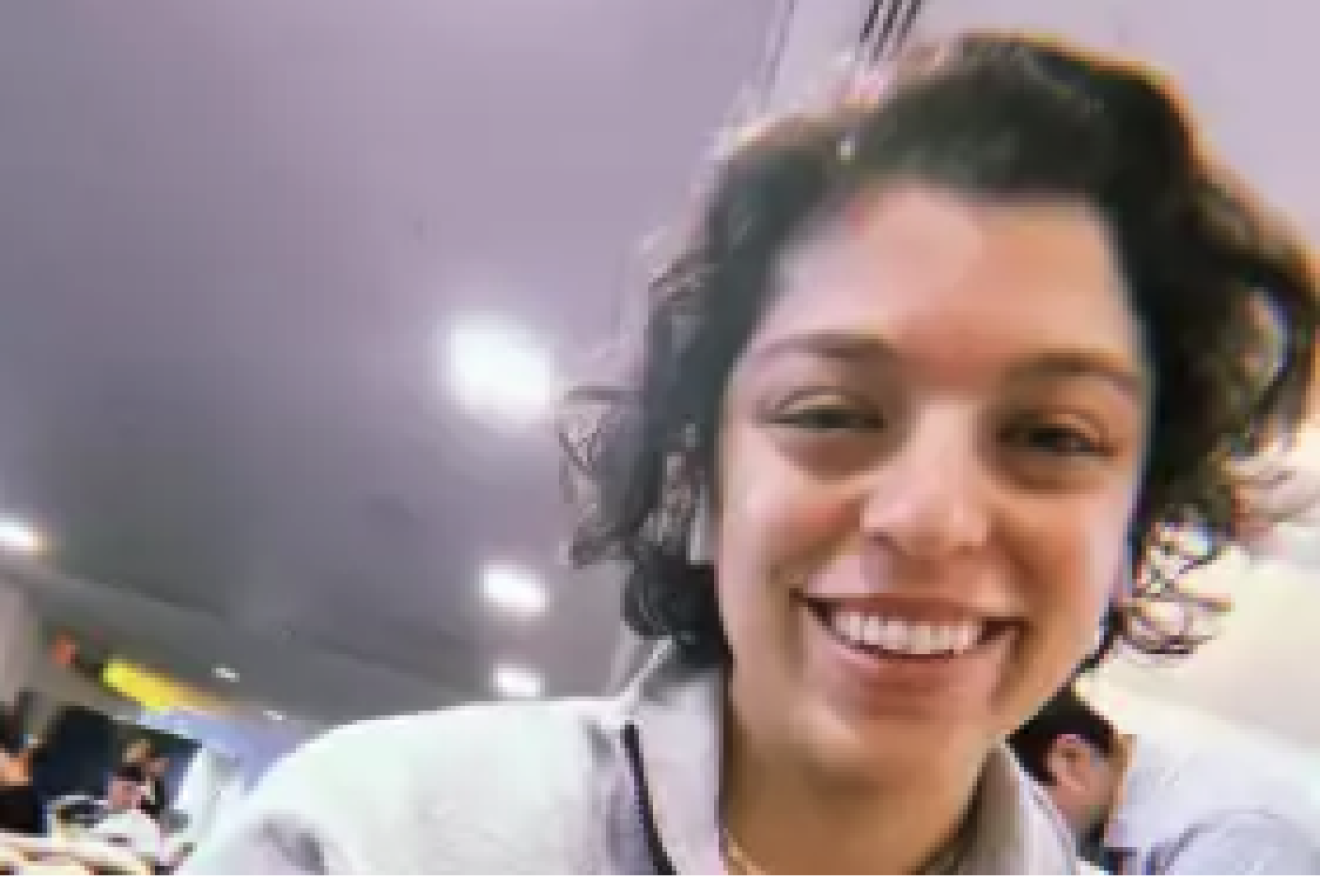
Pirouzian immigrated to Israel in the last week of December through the Nefesh B’Nefesh organization. She grew up in New York, the eldest daughter of an Israeli mother and a father who fled Iran during the revolution. Part of her father’s family still resides in Iran. Pirouzian is a nurse by profession, and before arriving in Israel she completed her nursing studies and began working as a nurse in a hospital.
“My entire life, since I was five years old, I had dreamed of immigrating to Israel and building my life here,” she said, adding that she decided to come now and take this step specifically because of the war. “I felt in my gut that this was the right thing to do. I wasn’t scared, my heart so wanted to come here. I said to myself that this is the time to do it. It’s either now or never.”
She said that while she did not fear the rising antisemitism in New York, she did feel uncomfortable: “The situation is not easy. You’re a target because you’re Jewish. There are more pro-Palestinian and anti-Israel demonstrations. There were times I didn’t feel comfortable speaking Hebrew in Manhattan. There is some fear. That is not our country—and that’s another reason why I wanted to come, to feel more belonging.”
Rosly Anatone (20), immigrated from France
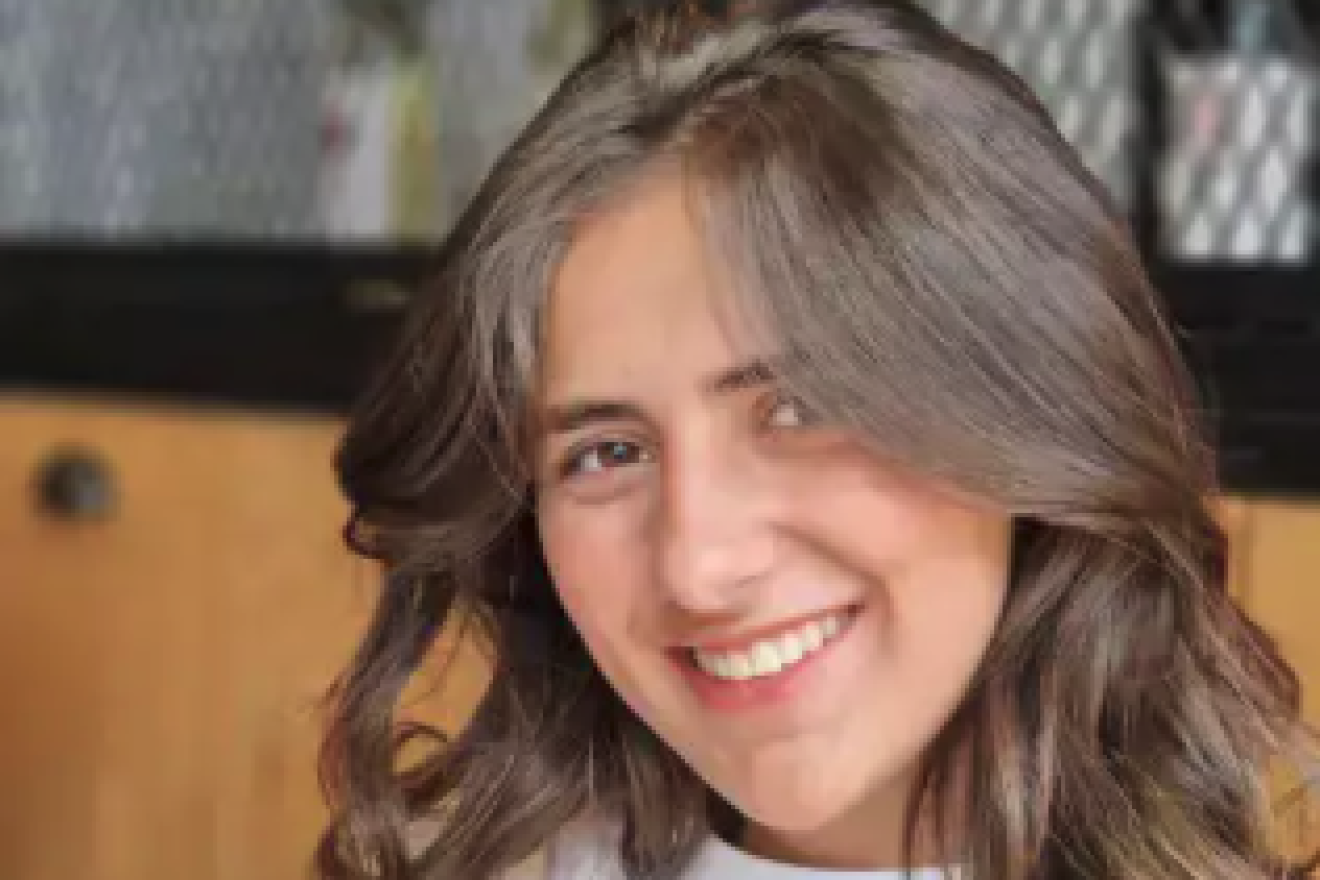
Anatone was born and raised in Marseille, France. She arrived in Israel in November, as part of a program at the Gur Yehuda pre-military academy, which prepares young French people interested in service in the IDF.
In the second week of the war, she recounted, her father arrived here to volunteer. She came shortly after him and decided to enlist as a combat soldier. “When I saw the war in France, it made me understand that I belong here. I felt pride. It was also important for my parents to come and help, and not just watch the war on TV.”
Her parents, she says, had intended to make aliyah within two years, but when the war broke out, they decided to expedite their plans. They sold their house in Marseille, and will arrive in Israel next month.
Her family did not experience antisemitism in Marseille, she said, and there are good relations between the city’s Jewish and Muslim communities. Nevertheless, since the attack at the school in Toulouse, where a teacher and three students were murdered about a decade ago, her mother has worried the same thing would happen in Marseille. “Nevertheless, they are not coming here because they are worried, but rather because the war awakened their Jewish identity and understanding that their place is in Israel.”
Audrey Dabach (30), immigrated from Switzerland
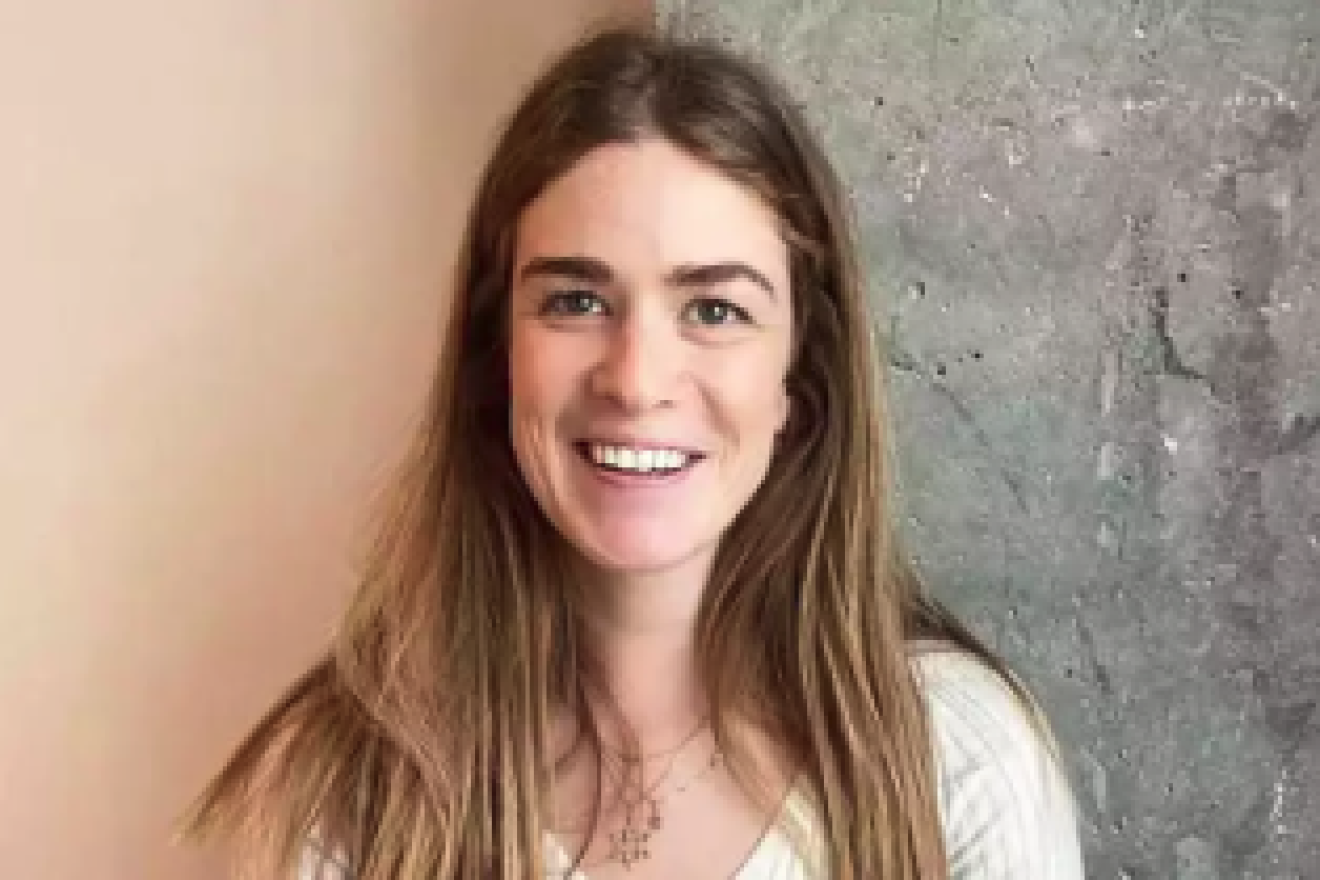
Dabach arrived in Israel a year and a half ago to do her master’s degree at Reichman University. Due to the war, she decided to stay in Israel and began the absorption process. “I grew up in a home where there was a lot of talk and stories about Israel, and until age 10, I studied at a Jewish school. I always knew that I wanted to be part of the State of Israel, and I wanted to come here to study and experience life in Israel, in a Jewish state,” she said.
“I arrived here a year and a half ago, fell in love with Israel, and during the war I decided to stay here. When the war broke out people asked me if I was sure I wanted to stay here. Especially since the war I am even more certain. I feel my special connection to the country, and with everything that is happening now, I just can’t go back to Switzerland. I feel at home here,” she added.
As part of her efforts to help, she volunteered to take care of children evacuated from Ashkelon to Tel Aviv, and says that due to the war, she stopped being friends with people who criticized Israel and her.
“I don’t see myself going back to Switzerland. My life is here now. I met many close friends, had experiences and learned that living here has a different meaning.”
Previously published by Israel Hayom.


























